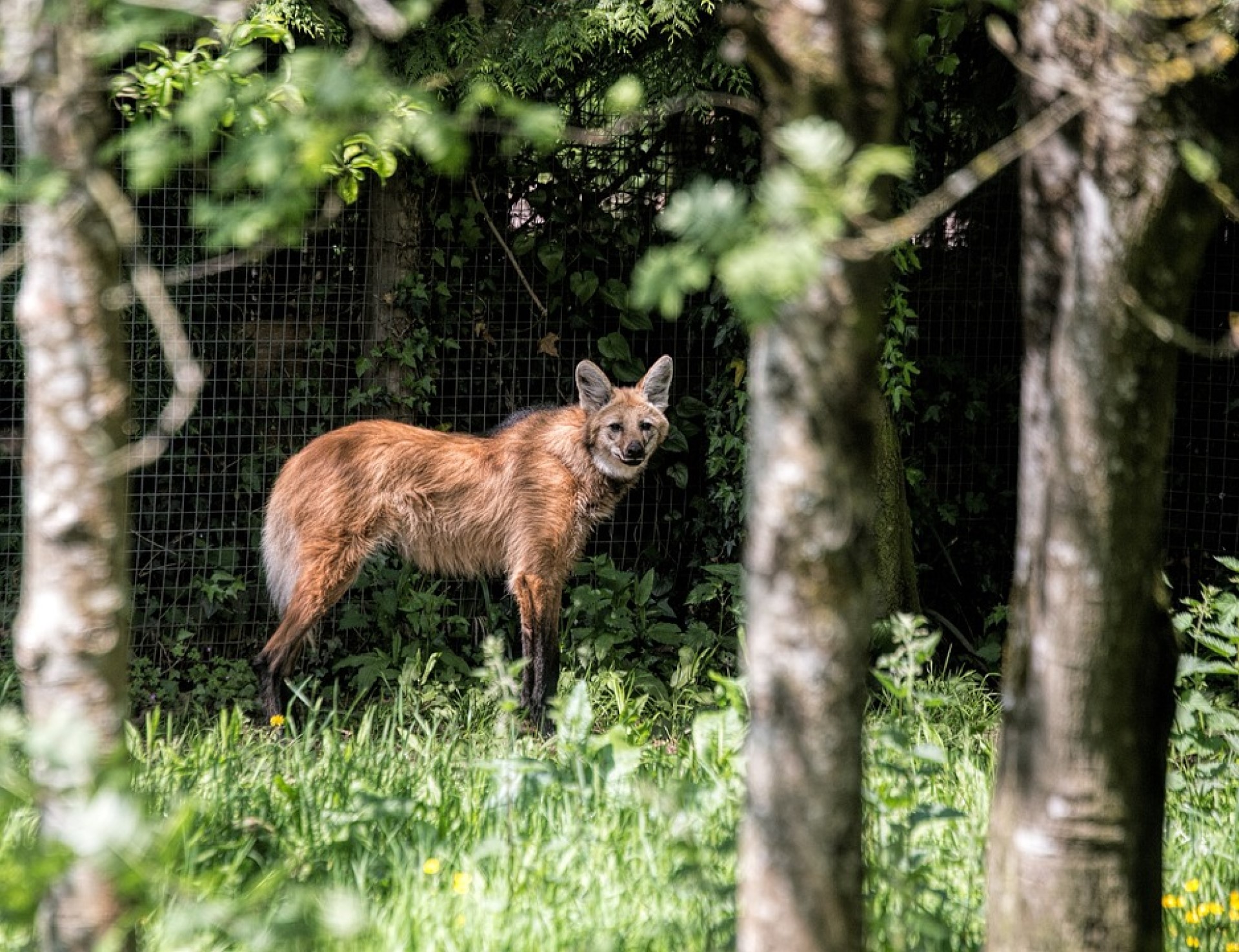
Looking, at first glance, like a fox on stilts, it is found in Argentina, Brazil, Bolivia, Peru, and Paraguay, and is almost extinct in Uruguay. It is actually not a wolf or a dog, but instead sits in its own genus Chrysocyon which means “golden dog”. It is crepuscular and omnivorous, and lives on the open habitat of the South America Savanna. The IUCN classes it as near threatened, while a Brazilian organisation with a similar role lists it as vulnerable.
Its name in a local language calls it a big fox. Indeed some studies have suggested that it should be in the same genus as pseudo-foxes.
A recent study suggested that its nearest relative was the Falkland islands wolf, and its mainland relatives – but you have to go back 7 million years to find a common ancestor with this group.
It only hunts solitarily, and its preferred habitat is grasslands, scrub prairies, and forests.
It is not currently considered endangered, given its wide area in which it inhabits, never-the-less it is recognized as a near threatened species due to its reducing numbers. In Brazil, Argentina and Uruguay it is forbidden to hunt them. It has been used to publicize the fight to protect the Brazilian cerrado, by placing it on one of the Brazilian notes.
This animal was shown in great detail in planet earth 3 episode 3, however, this clip is from a bbc series a few years ago.
As we make contacts which you can use to plan your travel to see this animal for yourself.










